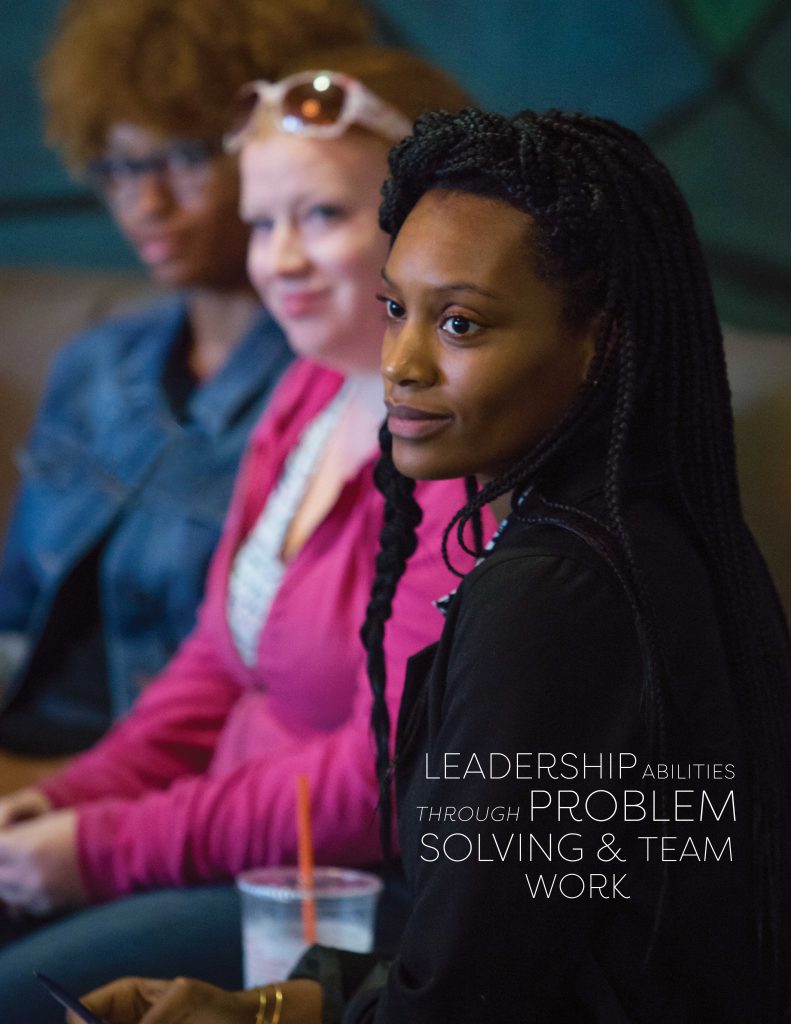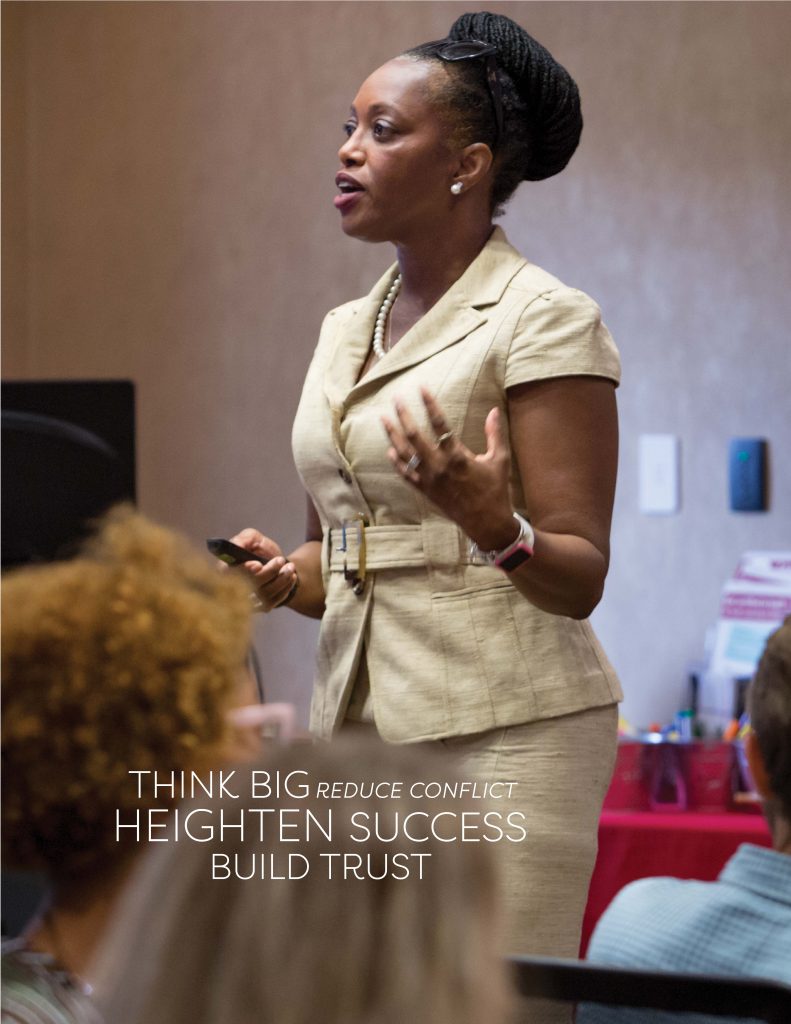Graduate Summer Leadership Academy Designed for Real Life Challenges
By: Cynthia Adams | Photos By: Nancy Evelyn
This past summer, 12 incoming University of Georgia doctoral students from STEM disciplines (Science, Technology, Engineering and Math) entered a summer-long academy meant to ensure their academic success. The program, Graduate Scholars Leadership, Engagement, and Development (GS LEAD) is a collaboration between the Graduate School, the College of Engineering, J.W. Fanning Institute for Leadership Development, the Office of the Vice President for Public Service and Outreach, the College of Education, the Grady College of Journalism and Mass Communications and the College of Veterinary Medicine.
GS LEAD was designed to develop a variety of leadership abilities through problem solving and teamwork concerning real community challenges. The National Science Foundation Innovations in Graduate Research Grant funded program was designed by Julie Coffield and Meredith Welch-Devine. Coffield is associate dean of the Graduate School, and Welch-Devine is director of interdisciplinary graduate studies. “The idea is not only to promote leadership within their fields but to also expose them to other career choices,” says Coffield. “Plus, this will train doctoral students in problem solving, interdisciplinary work, leadership, communication, and engagement.”

GS LEAD, A THREE-YEAR LEADERSHIP PROGRAM FOR NEW DOCTORAL STUDENTS BEGAN THIS PAST SUMMER. The summer program culminated in a “Challenge” course this fall offered through the Graduate School. The Challenge course is led by Ramana M. Pidaparti, a UGA professor in the College of Engineering and the college’s associate dean for academic programs.
The Graduate School partnered with several academic and public service units across campus to develop GS LEAD. Fanning faculty members Brandy Walker and Janet Rechtman facilitated the Summer Academy. Within a virtual “think tank” the students laid the groundwork for nonprofit community projects. The community projects undertaken concerned food-related problems.
“I am looking to connect with communities and meet them where they are,” said Brooke Douglas, a doctoral candidate in health promotion and behavior. She discussed wishing to master the skills needed in order “to have difficult conversations.” The student challenges require the participants to assume leadership roles in project management. The two projects undertaken address food related initiatives, one with the Advance Barrow County farm-to-school concept. Another concerns the Archway Community’s healthy foods for Spalding County, with the focus upon the Fairmont Community.
“Each team must also draft a project goal, one clearly delineated, and take steps to implement their plan,” says Coffield, who authored the NIH grant with Welch-Devine. The teams worked during the summer course to parse out their approaches. They specified what it would change, by
what date, and what indicators would be used to gauge the effected changes.
Rechtman pressed the group to think big as they conceptualized the community projects. “This is a group project and think tank. Envision the best possible outcome,” she urged.
“The Summer Academy has exceeded all my expectations,” said Walker, a co-leader on the project. “The students have made amazing connections across campus and in communities.” It also gave the students a view to their futures.
“At the start of the program, I did not see myself as a leader,” said Carly Duffy, a doctoral student in integrated life sciences. “But I know I need leadership skills to achieve my career goals.”
Last fall, the students entered the Grand Challenge Course led by Ramana Pidaparti, associate dean of the College of Engineering. This three-hour credit course integrates knowledge gained during the summer academy to design a prototype for a community challenge participants
identified in the Summer Academy. Ikseon “Ike” Choi, from the Department of Career and Information Studies Learning, Design and Technology, is one of the co-principal investigators of the program and leads the evaluation team.
The group discussed how to prevent and reduce conflict with the stakeholders in their projects. Facilitators challenged the students, asking if they viewed the community work like “another research project.”
During one session, Kevin Kirsche used the concept of a community tool box in an effort to widen the discussion concerning his team project. “Why is it important to understand your community before engaging with them?” he asked. Kirsche is director of sustainability at UGA and a returning student in the ICON program.
Rechtman suggested they apply critical analysis as they structured stakeholder approaches, asking, “How do you know if the information gathered is reliable?”
The group discussed means of building the stakeholder’s trust and reducing conflict. This work teaches means to heighten their academic success, while applying each aspect of their capabilities to real-life problems with benefit for the greater community, says Coffield.
“These are transferable skills that the students will not only use in their community projects, but will put to use in their own research project en route to a doctoral degree,” says Coffield. “The program was designed to shape a different STEM graduate with competencies we haven’t traditionally taught. These students will experience long-lasting engagement with their community and leave with a different set of abilities.”









